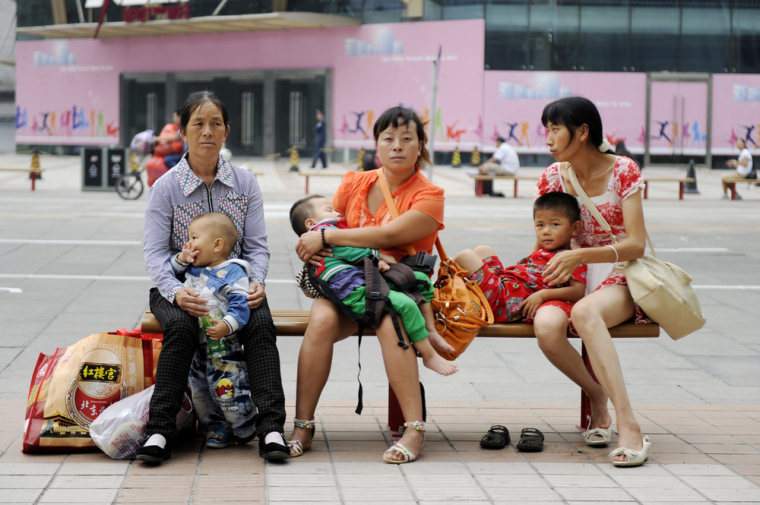China is to loosen its one-child policy as part of major reforms aimed at securing its economic future and strengthening policy ties with the United States, state media reported Friday.
The ruling Communist Party of China (CPC) will also reduce the number of crimes punishable by death, "work to ban" getting criminal confessions through torture, and improve the legal system.
Although the changes include human rights reforms, they are driven by the need to sustain its powerful economic growth.
Loosening of the family planning laws would help prevent the looming crisis caused by an aging population, and ensure continued manufacturing growth, analysts said.
"China has reached a turning point where the demographic dividend will become a liability," said Shuang Ding, China economist at Citigroup.
The CPC said it would in future allow couples to have two children if one of the parents is an only child, the state-run Xinhua news agency reported.
Current law allows couples living in cities to have two children - if neither parent has any brothers or sisters.
Many analysts say the one-child policy has shrunk China's labor pool, hurting economic growth. For the first time in decades the working age population fell in 2012, and China could be the first country in the world to get old before it gets rich.
Around 8.5 percent of China’s population -- 114.8 million people -- is over 65, and this will rise to 23.9 percent – around 322.9 million people -- by 2050, according to United Nations data.
The CPC said the change in family planning policy was intended to promote "long-term balanced development of the population in China," Xinhua said.
The changes, - announced Friday after being approved by the CPC at its historic and secretive Third Plenary Session earlier in the week – also include liberalization of China’s banking sector.
China's president, Xi Jinping, told visiting U.S. Treasury Secretary Jack Lew that China and the United States should strengthen policy coordination, Xinnhua said.
Xi also told Lew that China will "push forward reform with greater impetus" to maintain healthy economic growth, Xinhua said.
Following the announcement, a senior U.S. Treasury official told Reuters that China’s leaders had shown that they were committed to market-based reforms, but that they faced a test in trying to deliver results.
"I think there is going to continue to be progress, but the question is how much and how quickly," said the official.
"The direction is significant, but the character and the pace of change matters."
Among other changes are the creation of a national security commission and new measures to tackle fraud among Communist party officials.
The labor-camp system was designed to punish early critics of the Communist Party, but it is now used by local officials to deal with people who challenge the state on rights issues and corruption, the Associated Press said.
NBC News' Li Le, The Associated Press and Reuters contributed to this report.
Related:
